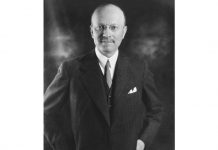Unique Hybrid Hydrogen technology was proved at the Nürburgring 24 Hours race. An Aston Martin Rapide S race car, featuring a Hybrid Hydrogen system developed by Alset Global became the first hydrogen-powered car to compete in, and to undertake zero CO2 emissions laps of, an international motor race. The historic event took place at one of the world’s most challenging motor races, the ADAC Zurich Nürburgring 24-Hour race in Germany in extreme weather conditions.
Leading the Aston Martin Rapide S driver line-up was Aston Martin CEO, Dr Ulrich Bez, who said, “We have exceeded our already very ambitious target of completing a full lap of the Nürburgring on hydrogen.” Aston Martin partnered with Alset Global on the project to showcase its commitment to engineering innovation in its centenary year.
The no. 100 Aston Martin Hybrid Hydrogen Rapide S was the sole entry within a special E1-XP2 classification (so it wasn’t too difficult to win the class). The Hybrid Hydrogen system, comprising a hydrogen fuel supply system, tank and proprietary engine management system, ran faultlessly throughout, demonstrating the reliability and durability of the technology which could be on a series production vehicle within a couple of years. In the race, the car reached top speeds of around 255 kph on pure hydrogen.
“This is a historic day for two reasons: besides being the first hydrogen-powered race car to compete and undertake zero CO2 emissions laps, it has showcased the most practical technology available to fundamentally, and within a very short period of time, address the challenge of global emissions, without disrupting the automotive industry,” said Jose Ignacio Galindo, CEO and founder of Austria-based Alset Global.
The hydrogen was supplied by Alset Global’s partner, Linde, via its TrailH2-gas mobile refuelling truck. Hydrogen was stored at 350 bar and a full refill was reduced to just 30 seconds per pit stop by the end of the race.
Hydrogen has been used as an alternative fuel for some time, especially by BMW, but there is no infrastructure to provide a reticulation system to supply hydrogen on a mass user basis.




